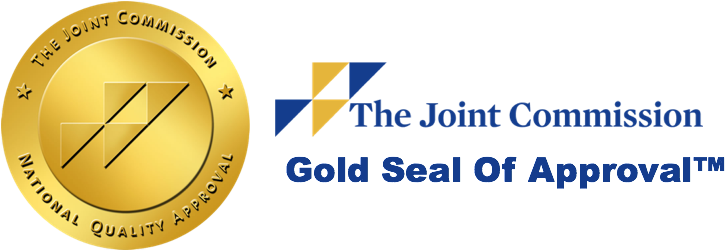What Is Postpartum Depression?
Postpartum is the term used for the time following childbirth. Oftentimes, it can be a period when women become depressed. While a few days or even weeks of depression can be considered normal for a woman after the birth of a child, there is cause for concern if symptoms of depression linger or worsen over time.
Causal Factors of Postpartum Depression
Postpartum depression (PPD) is a complex and multifaceted condition that is linked to several physical, psychological, and social changes that happen during the course of having a baby. These changes can trigger a range of physiological reactions in the body, including chemical imbalances in hormonal levels and neural networks in the brain. On top of these physical changes, new mothers may also experience social and psychological disruptions while adjusting to their new role as caregivers.
Some of the possible causes of postpartum depression include hormonal shifts in pregnancy, intense sleep deprivation, relationship stressors such as marital conflicts or financial struggles, and emotional shock or trauma following delivery. However, it is important to note that the precise causes of postpartum depression are not yet fully understood.
Despite this challenge, many effective treatment options are available for women dealing with this condition, from counseling and support groups to medication and therapies designed specifically for postpartum depression. With proper care and support, new mothers can manage this challenging condition and thrive in their role as a parent.
Signs and Symptoms of Postpartum Depression
Women with postpartum depression experience a wide range of symptoms, some of which include:
- Feeling sad or having a depressed mood
- Loss of interest or pleasure in activities once enjoyed
- Changes in appetite
- Trouble sleeping or sleeping too much
- Loss of energy or increased fatigue
- Increase in purposeless physical activity, such as the inability to be still, pacing, handwringing, or slowed movements or speech
- Feeling worthless or guilty
- Difficulty thinking, concentrating, or making decisions
- Thoughts of death or suicide
- Crying for “no reason”
- Lack of interest in the baby, not feeling bonded to the baby, or feeling very anxious about/around the baby
- Feelings of being a bad mother
- Fear of harming the baby or oneself
A woman experiencing postpartum depression usually has several of these symptoms, and the signs and their severity may change. To be diagnosed with postpartum depression, symptoms must begin during pregnancy or within four weeks following delivery.
When to See a Doctor
Experiencing the “baby blues” is common after giving birth. Some women experience other symptoms as well, such as feeling anxious or overwhelmed, having trouble sleeping, struggling with concentration and memory, or feeling disconnected from their baby. These are signs that you should talk to your doctor or a trained professional about your symptoms.
If You Have Suicidal Thoughts
If you have thoughts of harming yourself or your baby, immediately seek help from your partner or loved ones to take care of your baby while you call 911 or your local emergency assistance number to get help.
Also, consider these options if you’re having suicidal thoughts:
- First, seek help from your primary care provider or other health care professional.
- Call a mental health professional.
- Call a suicide hotline. In the U.S., call the National Suicide Prevention Lifeline at 1-800-273-TALK (1-800-273-8255) or use their webchat on suicidepreventionlifeline.org/chat.
- Reach out to a close friend or loved one.
- Contact a minister, spiritual leader, or someone else in your faith community.
If you have thoughts of harming yourself or your baby, it’s essential you reach out for help immediately.
Treating Postpartum Depression
Many women suffer from depression during pregnancy and after childbirth and fail to seek care. One reason for this may be that new mothers often dismiss their struggles as a normal part of pregnancy and childbirth. Additionally, women may feel ashamed of their symptoms, which causes them to minimize or mask their struggles.
Greater awareness and understanding of depression during pregnancy can lead to better outcomes for women and their babies. If left untreated, postpartum depression can last for months or even years and ultimately be life-threatening to the mother or child, making early intervention key.
Benefits of Treatment
While there is danger in leaving this disorder untreated, the benefits of treating postpartum depression are numerous. Treating postpartum depression can:
- Help the mother-infant bond
- Improve infant development
- Prevent postpartum depression from recurring in future pregnancies
Studies show that women who receive treatment are more likely to initiate breastfeeding, which has numerous benefits for the mother and child.
Typically, postpartum depression is treated through a combination of medication therapies and counseling services.
Find a Postpartum Depression Treatment Center Near You
When it comes to treating postpartum depression, there is no one-size-fits-all approach. Instead, different options for treatment may be more or less effective depending on the individual and their specific needs.
Some common treatments for postpartum depression include cognitive-behavioral therapy (CBT), prescription medications, self-care, and outpatient programs. While these treatments can be beneficial on their own, they are often even more effective when combined.
At The Phoenix Recovery Center, we offer comprehensive mental health services designed to help women with postpartum depression overcome their symptoms and regain control of their lives. Whether our clients choose to participate in group therapy, individual counseling, or medication management sessions, our experienced clinicians and psychiatrists are dedicated to helping them find lasting relief from this debilitating condition. We work closely with each client to develop an individualized treatment plan that helps them regain their sense of stability and well-being.
Whether you are struggling with mild or severe symptoms of the disorder, The Phoenix Recovery Center can help you find the healing you need to move forward with confidence and hope.
The Phoenix Recovery Center
Postpartum depression is a complex condition that is influenced by a variety of physical and psychological changes that happen during the childbirth process. This condition is characterized by various physical and emotional symptoms that can significantly impact a new mother’s ability to care for her baby and herself. While there are many different treatment options available for those suffering from PPD, including medication and counseling, it is important to seek professional help as soon as possible to manage this condition effectively. The Phoenix Recovery Center is among the top mental health facilities in Utah and contains treatment programs that are designed to help women recover from their postpartum depression. Whether you are struggling with feelings of sadness, fatigue, guilt, or anger following your pregnancy, our evidence-based approach will help you regain your strength to be the best mother possible. If you or someone you love is suffering from postpartum depression, call The Phoenix Recovery Center today at (801) 438-3185.







